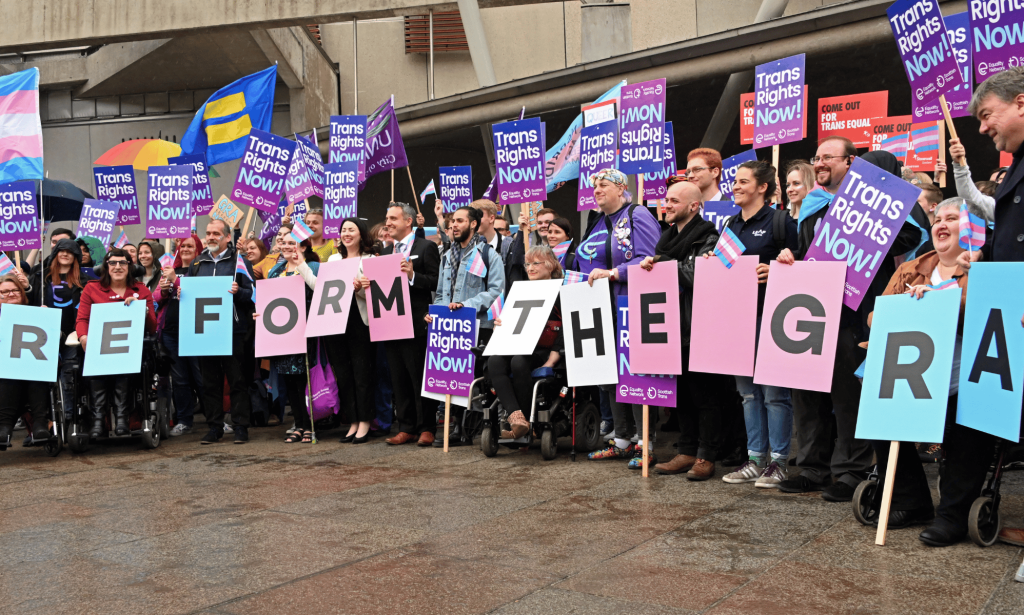Scottish Tories ‘shamefully’ delay critical gender reform vote for second day

Scottish Conservative leader Douglas Ross. (Ken Jack/Getty)
In Scotland, a delayed vote on the Gender Recognition Reform Bill will take place after Scottish Tories were accused of “shamefully filibustering” parliamentary proceedings.
The Scottish Parliament began voting on amendments to the Gender Recognition Reform Bill on Tuesday (20 December), but proceedings were delayed into the early hours by Tory amendments and interventions.
Similar tactics were deployed on Wednesday, which should have seen a final vote on the bill. As a result debates and votes on GRA reform will now be held on Thursday (22 December), the last day of the parliamentary term before Christmas recess, Herald Scotland reported.
Wednesday’s session was another late-night one, and voting continued until around 1am.
The Scottish Tories caused further delays, including by tabling an amendment at the last minute which alone delayed proceedings by an hour. They were accused of “wasting time” during the prolonged session, having “blatantly and shamelessly filibustered all afternoon and evening then complained about the time”.
Deputy presiding officer Liam McArthur told Scottish Tory leader Douglas Ross he was “skirting close to being in contempt of parliament”, the BBC reported.

Glasgow’s Green MSP Patrick Harris wrote on Twitter that there was “more than an hour of delaying tactics” before members were “finally into the debate on amendments”.
“Those who have tried to delay this bill at every step of the way have behaved shamelessly, and continue to do so,” Harris said.
MSP Maggie Chapman said that despite the Scottish Tories’ “disgraceful” attempts to delay the bill, it will go through and “create a more inclusive Scotland”.
“The Tories should be ashamed of their cynical attempts to filibuster the GRR bill,” Chapman said on Wednesday (21 December).
“We’ve also heard disgraceful dog whistles and smears towards the trans community today. Despite all of this, we will pass GRR and create a more inclusive Scotland.”
Despite delays, Scotland’s Gender Recognition Reform bill has the backing of several parties, and is expected to pass its final vote.
The legislation, which passed its first vote on 27 October, would amend the Gender Recognition Act 2004 to lower the age limit to apply for a Gender Recognition Certificate from 18 to 16, and shorten the period a trans person would have to wait before legally changing their gender.
Trans people would also be able to gain legal recognition without being required to get medical reports or a diagnosis in order to obtain a GRC.
Under current legislation, trans people must apply to a UK gender recognition panel and present reports as well as a diagnosis of gender dysphoria – a process that can take years given the immense wait times at NHS gender clinics.
Vic Valentine, manager of Scottish Trans, explained that everyone wants to be “able to be true to ourselves and have that accepted and supported by our friends, family and communities”.
Valentine noted the “unfair process for changing the sex recorded” on birth certificates.
“This means that at important moments in our life – like starting college or a new job, or when getting married – we have to show a document that doesn’t reflect who we truly are,” Valentine said.
The advocate added voting in favour of the bill is an opportunity for MSPs to have a “positive impact on the lives of trans people across Scotland”, supporting their “freedom to live as [their] true selves”.

